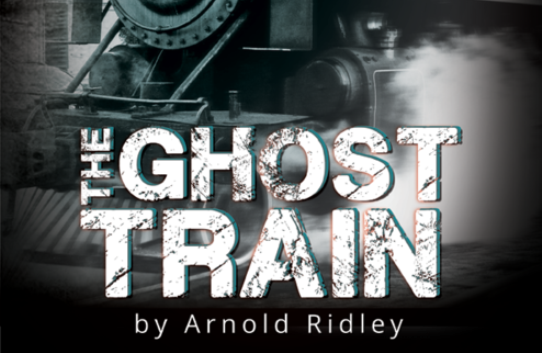@ Dundee Rep Theatre, until Thu 2 Apr 2015
Before the curtain has even lifted, the atmosphere is being set. We hear the distant rumblings of a storm and the pitter-patter of heavy rainfall as it hits the ground. No, The Wee Review isn’t sat outside for this production of Arnold Ridley’s 1923 classic comedy thriller The Ghost Train, but nestled snuggly in the Dundee Rep. The play begins as six travellers (a newlywed couple, an estranged couple, a self-indulgent young dandy and an elderly spinster) find themselves stranded at a remote train station in the English countryside while the station master informs them of the mysterious and ghostly happenings during that night twenty years ago…
Like the ambient noise used before the play begins, sound is a key factor in building foreboding and tension, achieved by aptly placed shrieks, knocks and muffled voices. Likewise the same can be said of the lighting, be it the dimming of the old gas lamp that hangs above the all-but-dormant fireplace or the periodic flashes of lightning. In fact, it is through the use of sound and lighting that most of the frights come. It is never the revelations in the storyline that induce fear, but rather a sudden and unexpected noise or flash.
The humour of the play, when viewed with contemporary sensibilities, feels a little dated. While never invoking a laugh out loud moment, it is constantly amusing for the duration. Although it may ultimately detract slightly from the overall show, it still works well with the tone and the cheap frights the play generates, resulting in a fun and light-hearted romp.
While each of the six principle characters can be seen as stereotypical members of the British middle class, they are each written distinctively and characterised well, with believable (albeit exaggerated) personality traits. This is grasped well by the cast, each performance exuding confidence and gusto. Although the performances are strong all around, the stand out is Tom Butcher as the blunderingly incognizant buffoon Teddie Deakin.
With a play that has been in and out of production for just over ninety years, spawned adaptation and influenced others, it’s all too possible that one might already know or be able to predict the ending. So the mark of success for this type of show isn’t whether or not it can surprise the audience, but rather its ability to keep them engaged in the moment, so that they aren’t thinking too much about the overall mystery and how it is going to end, but are instead happy to be taken along on the ride; and in this The Ghost Train succeeds.
